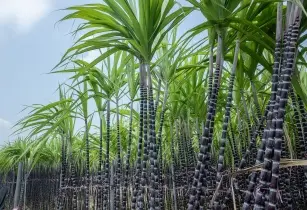The World Bank (WB) Report on the Sugarcane Sector Review was released during a workshop held at the Caudan Arts Centre, in Port Louis
The half-day workshop brought together stakeholders of the sugarcane sector to discuss the report which provides the main recommendations for public policy and programmes for the future development of the sugarcane sector in Mauritius.
Attorney General, minister of Agro-Industry and Food Security, Maneesh Gobin highlighted that the government decided in 2019 to commission the services of the WB Team to undertake a study on their sugar sector with a view to provide clarity and help in finding solutions to ensure the long-term viability of the country's cane industry.
The Acting Country Representative of the World Bank Group, Brinda Devi Dabysing, CEO of Mauritius Cane Industry Authority (MCIA), Satish Purmessur, and other personalities were present.
Gobin recalled that in January 2020, the ministry of Agro-Industry and Food Security signed an Advisory Services Agreement on behalf of the government with the WB. The objective of the advisory services, the minister underlined, was to provide policy recommendations to the Government of Mauritius regarding the development of the sugarcane sector and included three main deliverables, namely competitiveness assessment of the sugar cane sector, vision exercise with sector stakeholders, and proposed policy actions and implementation plan.
Gobin further indicated that recommendations put forward in the report will be implemented in taking into consideration available options following consultations with concerned stakeholders.
Dabysing indicated that there have been a large number of reports, strategies and proposals for the development of the sugarcane sector in the recent years, where many proposed changes did not happen and did not yield the intended results in the past. Taking this into consideration, she underlined that rather than adding one more report to the list of sector diagnostics, the WB Team set out to develop a series of tools and assessments that would allow the sector to come up with its own conclusions on what needs to be done.
With this report, she highlighted, the WB has provided policy options and recommendations to the government with the hope that this outside view of the challenges and opportunities can help all stakeholders to design and implement the needed reforms.
She added that the goal of the WB Team through the various tools, trainings and workshops has been to build the capacity of Mauritius’s public institutions and sector stakeholders to assess the options for improving the viability of the sugar cane sector and make informed public policy decisions for the future of the sector.
Dabysing appealed to stakeholders to reach out to the WB team whenever the need is felt as they are here to support and strengthen the ability to make informed decisions as well as support the development of the agriculture and energy sector of the country. Sugarcane, she pointed out, can be a transformative change agent socially, environmentally and economically, thus it is important to consider the options available for the development of this sector.
Satish Purmessur added that the MCIA has acted as a facilitator between the WB and the stakeholders of the cane industry so as to provide full support to the WB in materialising their project on time. He added that a total of 15 video-conferences/workshops were organised where all stakeholders had the opportunity to interact directly with the experts from the WB Team and share their views on the way forward from their perspective to ensure the sustainability of the industry.
He indicated that four no-regret policy reforms, which the WB recommended to the government were analysed, notably: increase of the price of electricity produced from bagasse; supporting the movement towards high-tech sugar cane farming; reducing the sugar export logistics costs; and increasing the share of specialty sugars sold.
He outlined a number of policy options that the WB had proposed to the Government that were considered in Budget 2021/22.




